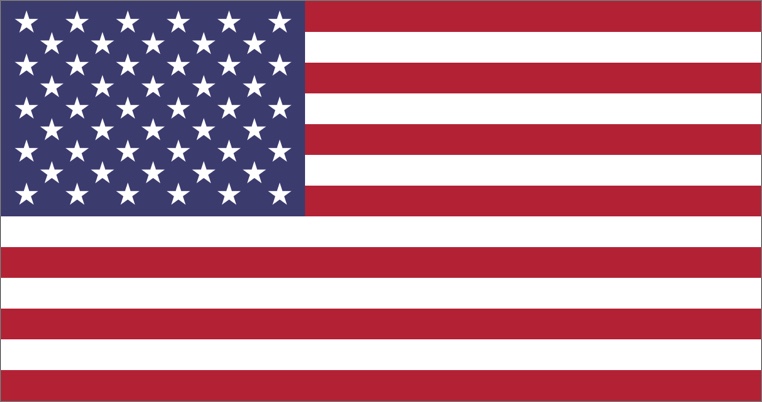Do We Need an American Creed?

After such a harsh, uncivil election season and with a new presidency approaching, the necessity of reaffirming an American Creed gains urgency.
During this recent holy season, Christians and Jews returned to their timeless creeds with increased fervor and piety. In 325 CE, Roman Emperor Constantine, the first Christian emperor, troubled by the controversy over heretical Arianism, called a council of church leaders to resolve it. In ultimately condemning Arianism, it also formulated the Nicene Creed, the basic beliefs of Christians which 1700 years later Roman Catholics still recite at every mass.
Creeds come in different shapes and sizes. Not only religions but also individuals have creeds. George Washington, beginning at sixteen, tried to live by "The Rules of Civility and Decent Behavior in Company and Conversation:” 110 rules of good character contained in a 16th century Jesuit book. Benjamin Franklin held 13 virtues to be supreme and listed these in his autobiography. They include such things as: 1. Eat not to dullness; drink not to elevation, and 13. Imitate Jesus and Socrates.
In the wallet of Dennis Lee Curtis, an armed robber, was found a set of rules when he was arrested in Rapid City, South Dakota, in the early 1990's. They included: 1. I will not kill anyone unless I have to. 2. I will take cash and food stamps—no checks. 8. I will enjoy robbing from the poor to give to the poor.
Successful, resilient countries also need creeds. In his farewell speech, President Obama referred to such an American creed. In referring to earlier immigrants, he said: “they embraced this nation’s creed and it was strengthened.” With such a fragmented country, I wondered whether my history students and I could formulate an “American Creed:” words on which most Americans would or at least should agree. I explained to them that unlike most great powers in history, Americans define themselves by certain words and principles. We have never reposed our trust and identity in an emperor, king, ruler, or political party.
At term end, we arrived at these.
One: “We hold these truths to be self-evident, that all men are created equal; that they are endowed by their Creator with certain unalienable rights; that among these, are life, liberty, and the pursuit of happiness. That, to secure these rights, governments are instituted among men, deriving their just powers from the consent of the governed ….” (Declaration of Independence, 1776)
Two: “…that this nation, under God, shall have a new birth of freedom—and that government of the people, by the people, for the people, shall not perish from the earth.” (Abraham Lincoln, Gettysburg Address, 1863)
Three: “Give me your tired, your poor, your huddled masses yearning to breathe free.” (Emma Lazarus, 1883)
Four: “Let me assert my firm belief that the only thing we have to fear is fear itself—nameless, unreasoning, unjustified terror.” (Franklin Delano Roosevelt, 1933)
Five: “… ask not what your country can do for you; ask what you can do for your country.” (John F. Kennedy, 1961)
And finally, six: “I have a dream that my four little children will one day live in a nation where they will not be judged by the color of their skin, but by the content of their character.” (Martin Luther King, Jr., 1963)
Since I essentially had done the selecting, I asked the students, when assessment time came, to add a seventh quote. I received some interesting ones. Not surprisingly, one student offered the Pledge of Allegiance. Also, “The greatness of a man is not how much wealth he acquires but in his integrity and ability to affect others around him positively.” (Bob Marley) “All great change in America begins at the dinner table.” (Ronald Reagan) “The life of the nation is secure only while the nation is honest, truthful, and virtuous.” (Frederick Douglass) At the end of his farewell speech, President Obama offered his own addition: “yes we can.”
At the climax of the musical Don Quixote, the near-death Quixote, scorned and covered with scars, asks Dulcinea: “Tell me the words.” He has forgotten the words that once actuated him on his quest. This exercise reminded me and my students of words that have inspired Americans, and others beyond our shores, for two and one-half centuries. They have helped to make the USA not only the political, military, and cultural leader of the West, but also its moral leader.
George Packer, in his award-winning book, The Unwinding, suggests how America in the last four decades has been in a “vertigo” of “unwinding,” bringing power to organized money, a surfeit of freedom, aloneness, change, and new celebrity icons. As we undergo renewal, only the cacophony of “American voices” has persisted.
Perhaps with the arrival of the new year, political power passing to a new group of leaders, and our search for common ground, we can rediscover the right words from our past, rebalance their inherent conflicts, and find their best application for America’s future.